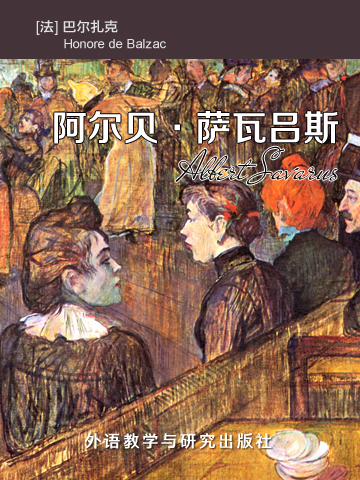一段不幸的爱情悲歌,到底是人性的自私,还是社会常态?
One of the few drawing-rooms where, under the Restoration, the Archbishop of Besancon was sometimes to be seen, was that of the Baronne de Watteville, to whom he was particularly attached on account of her religious sentiments.
A word as to this lady, the most important lady of Besancon.
Monsieur de Watteville, a descendant of the famous Watteville, the most successful and illustrious of murderers and renegades—his extraordinary adventures are too much a part of history to be related here—this nineteenth century Monsieur de Watteville was as gentle and peaceable as his ancestor of the /Grand Siecle/ had been passionate and turbulent. After living in the /Comte/ (La Franche Comte) like a wood-louse in the crack of a wainscot, he had married the heiress of the celebrated house of Rupt. Mademoiselle de Rupt brought twenty thousand francs a year in the funds to add to the ten thousand francs a year in real estate of the Baron de Watteville. The Swiss gentleman's coat-of-arms (the Wattevilles are Swiss) was then borne as an escutcheon of pretence on the old shield of the Rupts. The marriage, arranged in 1802, was solemnized in 1815 after the second Restoration. Within three years of the birth of a daughter all Madame de Watteville's grandparents were dead, and their estates wound up. Monsieur de Watteville's house was then sold, and they settled in the Rue de la Prefecture in the fine old mansion of the Rupts, with an immense garden stretching to the Rue du Perron. Madame de Watteville, devout as a girl, became even more so after her marriage. She is one of the queens of the saintly brotherhood which gives the upper circles of Besancon a solemn air and prudish manners in harmony with the character of the town.
这篇小说以地位悬殊的不幸恋爱为题材,描写了一个才能出众,却没有财产和爵位的青年律师阿尔贝的悲剧故事。他为了配得上他所爱的公爵夫人,呕心沥血,追名逐利,惨淡经营达十余年。就在他即将成功之际,一个偷偷爱上他的贵族少女罗萨莉施展种种卑鄙手段,拆散了这一对情人,断送了阿尔贝的一生。作者在小说中揭露了路易-菲力浦时代外省名利场中的种种肮脏交易,同时也指责了虚伪狭隘的宗教教育及上层社会妇女的自私、骄横和残酷无情。
What an ideal being was this Albert--gloomy, unhappy, eloquent, laborious, as compared by Mademoiselle de Watteville to that chubby fat Count, bursting with health, paying compliments, and talking of the fashions in the very face of the splendor of the old counts of Rupt.
- Albert Savarus
- 书评 写书评
- 笔记
-
书评加载中...



20141029150723213654.jpg)
201410291509180321181.jpg)








 京公网安备 11010802032529号
京公网安备 11010802032529号
笔记加载中...